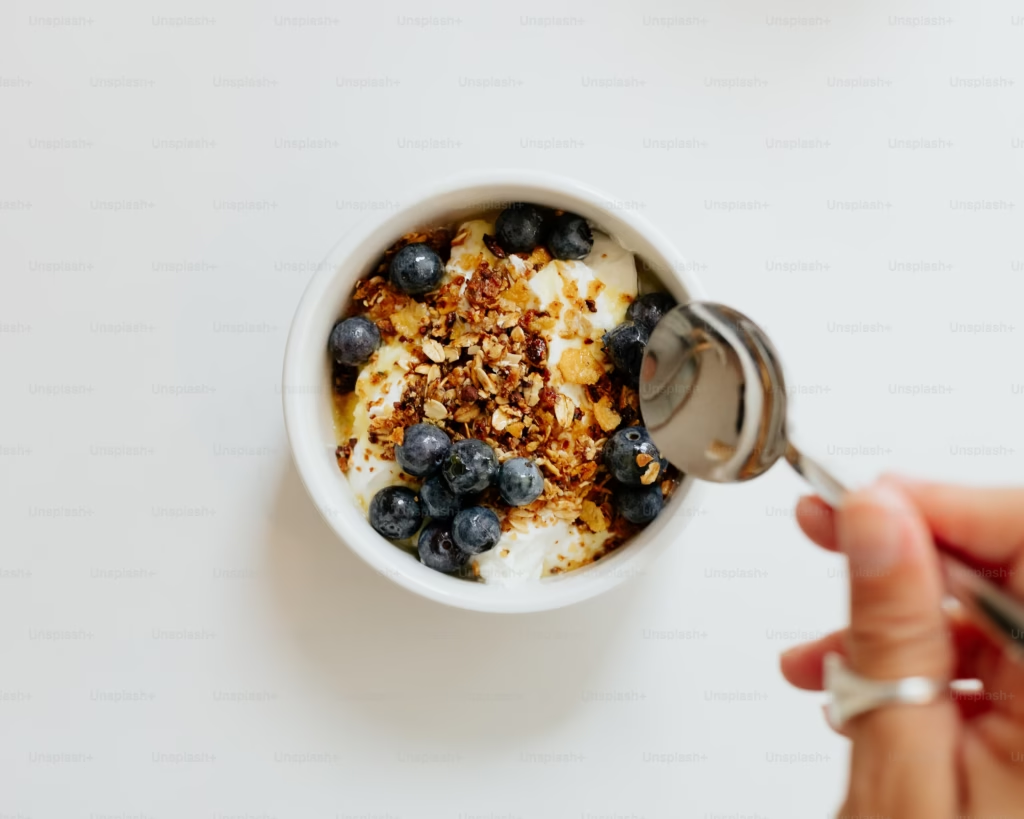
Top 10 Gut-Friendly Foods That Boost Your Mood Naturally
Links included in this description might be affiliate links. If you purchase a product or service with the links that I provide, I may receive a small commission. There is no additional charge to you! Thank you for supporting my blog so I can continue creating free content each week!
Introduction to Gut Health and Mood Connection
Understanding the intricate relationship between gut health and mental well-being requires a closer examination of the gut microbiome, a complex community of microorganisms residing in our digestive system.
Research has increasingly shown that this microbiome plays a critical role in regulating mood and emotional health through a pathway commonly referred to as the gut-brain axis. This connection underscores the significance of nurturing gut bacteria as a means to enhance overall mental wellness.
The gut-brain axis establishes a communication network between the gut and the brain, allowing for bi-directional signaling. This means that what happens in the gut can influence the brain and vice versa. The gut microbiome is known to produce various neurotransmitters, including serotonin, which is often dubbed the “feel-good” chemical. Approximately 90% of the body’s serotonin is produced in the gut, illustrating how essential gut health is for mood regulation.
A disruption in this microbial balance can lead to decreased serotonin levels, potentially leading to mood disorders such as depression and anxiety.
To support optimal gut health, it is crucial to incorporate gut-friendly foods into one’s diet. Foods rich in fiber, probiotics, and prebiotics can help nourish beneficial bacteria, supporting their growth and activity. This, in turn, can contribute to a more balanced gut microbiome.
By focusing on the intake of such foods, individuals may not only experience improvements in their digestive health but also in their overall mood and mental stability. Hence, it is clear that prioritizing gut health through diet can serve as a natural strategy for boosting mood and promoting mental wellness.
The Role of Probiotics in Mood Enhancement
Probiotics are live microorganisms that, when consumed in adequate amounts, confer health benefits on the host, particularly concerning gut health. They play a crucial role in maintaining the balance of gut microbiota, which is essential for overall wellness. Research indicates that a healthy gut microbiome can significantly affect mood and mental wellness.
Probiotics may help in regulating neurotransmitter production, such as serotonin, known as the “feel-good” hormone, which is primarily produced in the gut.
Various food sources are rich in probiotics. Fermented foods, such as yogurt, kefir, sauerkraut, kimchi, and kombucha, are excellent options for incorporating more probiotics into the diet. The consumption of these foods not only promotes gut health but also enhances mood regulation through improved gut-brain communication. The interaction between the gut and brain, known as the gut-brain axis, is fundamental in understanding how the microbiome can influence behavior, stress responses, and emotional health.
Several studies have highlighted the potential of probiotics in reducing symptoms of anxiety and depression. For instance, a systematic review in 2016 analyzed various clinical trials and found that probiotics significantly reduced depression scores in participants. Additionally, individuals with improved gut health, as a result of probiotic consumption, reported reduced anxiety levels in controlled studies. Such findings suggest that incorporating gut-friendly foods, which are also rich in probiotics, can serve as a natural approach to boost mood and overall mental well-being.
The impact of probiotics on mental health is an emerging field of research that continues to unveil the intricate connections between diet, gut microbiota, and emotional well-being. Therefore, integrating probiotics into one’s diet could be a beneficial step for those seeking natural methods to enhance both gut and mental health.
Yogurt: A Creamy Powerhouse
Yogurt stands out as a top gut-friendly food, primarily due to its rich content of live bacterial cultures known as probiotics. These beneficial bacteria play a significant role in maintaining gut health by promoting a balanced microbiome.
The consumption of yogurt has been linked to various health benefits, including improved digestion and a decreased risk of gastrointestinal disorders. Additionally, these probiotics can enhance nutrient absorption, which is vital for overall health and well-being.
The nutritional profile of yogurt adds to its status as a powerhouse food. It is a great source of protein, which is essential for muscle repair, immune function, and overall energy levels. Yogurt also provides a substantial amount of calcium, crucial for maintaining strong bones and teeth.
Studies suggest that the combination of protein and calcium in yogurt supports not only physical health but also contributes to mental wellness. A healthy gut has been associated with a more positive mood, framing yogurt as an excellent choice for those seeking to boost their emotional health.
Regular consumption of yogurt can contribute to improved mood due to its gut-friendly properties. As the gut and brain are interconnected, a healthy digestive system can influence mental states. When the gut microbiome is balanced, it may lead to enhanced mental clarity and a reduced risk of mood disorders, underscoring the importance of integrating yogurt into one’s diet.
Incorporating yogurt into meals or snacks promotes a beneficial gut environment, supporting the idea that what we eat significantly impacts our mood and mental health. Hence, yogurt remains an accessible and effective food choice for those aiming to enhance both their gut health and overall well-being.
Fermented Foods: Sauerkraut and Kimchi

Fermented foods such as sauerkraut and kimchi have gained significant attention in recent years due to their beneficial impact on gut health and overall well-being. These foods undergo a natural fermentation process where beneficial bacteria thrive, resulting in a rich source of probiotics. Probiotics are essential for promoting a balanced gut microbiome, which plays a crucial role in digestive health and can have far-reaching effects on mood and mental wellness.
Both sauerkraut and kimchi are made from cabbage, although they are seasoned differently, which gives them unique flavor profiles. Sauerkraut is typically made from finely shredded cabbage that is fermented with lactic acid bacteria and, at times, additional spices. It has a tangy flavor that can complement various dishes.
Kimchi, on the other hand, is a traditional Korean dish that includes a combination of fermented vegetables, often with garlic, ginger, chili pepper, and various seasonings. This results in a spicier and more complex taste, making it a versatile accompaniment for countless meals.
The fermentation process not only enhances the flavor but also maximizes the nutritional value of these foods. The presence of probiotics in fermented foods can help improve digestion, reduce symptoms of bloating, and enhance gut health overall. Recent studies suggest that a healthy gut microbiome can significantly affect neurotransmitter production, such as serotonin, which plays a vital role in regulating mood and promoting emotional stability.
Thus, incorporating fermented foods like sauerkraut and kimchi into your diet may provide a dual benefit—supporting gut health while simultaneously contributing to improved mood and mental wellness.
Bananas: The Mood-Boosting Fruit

Bananas are often celebrated not only for their convenience and taste but also for their significant contributions to gut health and mood enhancement. This tropical fruit is rich in fiber, essential for promoting a diverse gut microbiome.
A healthy gut is increasingly linked to improved mental wellness, as the gut and brain communicate through various biochemical pathways.
The fiber content in bananas aids digestion, helping to regulate bowel movements and maintain a balanced gut flora, which is essential for optimal gut health.
Furthermore, bananas contain prebiotics—specific fibers that nourish beneficial gut bacteria. By supporting these microorganisms, bananas help create an environment conducive to overall well-being and mood regulation.
Moreover, bananas are well-known for their high potassium content. This important mineral plays a pivotal role in maintaining various physiological functions, including nerve signaling and muscle contractions. Adequate potassium levels can contribute to better energy levels and less fatigue, positively affecting mood. I
n addition to potassium, bananas are packed with other essential nutrients, such as vitamin B6 and magnesium, which are critical for neurotransmitter synthesis. Specifically, vitamin B6 is vital for converting tryptophan, an amino acid, into serotonin—the neurotransmitter often referred to as the ‘feel-good’ hormone.
The interplay between nutrient-rich foods like bananas and our mental health is reinforced by research suggesting that increasing the intake of gut-friendly foods can lead to a significant boost in mood. Integrating bananas into your daily diet may not only enhance your gut health but also provide the mental uplift you need. Enjoying them as a snack or adding them to smoothies ensures you’re reaping these beneficial effects, making this fruit a remarkable addition to a gut-friendly diet.
Oats: A Warm Bowl of Happiness

Oats are often regarded as a staple whole grain food, particularly favored for their warm and comforting qualities. One of the standout features of oats is their rich content of soluble fiber, specifically beta-glucan. This particular type of fiber plays a critical role in promoting gut health by fostering the growth of beneficial gut bacteria, which in turn can enhance mental wellness. A healthy gut microbiome has been directly linked to improved mood and cognitive function, suggesting that oats can contribute to overall mental health.
Furthermore, oats are known for their slow-release energy properties. Unlike many processed carbohydrates, oats digest slowly, leading to a gradual release of glucose into the bloodstream. This slow release helps to stabilize blood sugar levels, preventing the sharp spikes and crashes that can adversely affect mood. By maintaining a steady supply of energy, oats can help individuals avoid feelings of irritability, fatigue, and anxiety, thereby contributing positively to mental wellness.
Incorporating oats into your daily diet can be simple and delicious. Breakfast options such as oatmeal or overnight oats not only provide a gut-friendly food choice but also offer versatility in preparation. Toppings such as fruits, nuts, or seeds can further enhance their health benefits and introduce additional fiber and nutrients that support both gut health and mood enhancement.
In conclusion, oats serve as a powerful ally in the quest for improved mental wellness. By promoting gut health through their fiber content and stabilizing energy release, they create a foundation for better mood regulation. Adding oats to your meals can become a simple yet effective step towards achieving a healthier lifestyle, benefiting both the gut and the mind.
5. Leafy Greens: Nutrient-Dense Mood Lifters

Leafy greens such as spinach, kale, and Swiss chard are celebrated not only for their vibrant appearance but also for their significant health benefits, particularly regarding gut health and mental wellness. These vegetables are packed with essential vitamins and minerals, making them excellent choices to incorporate into a balanced diet aimed at boosting overall mood and emotional well-being.
One of the standout features of leafy greens is their rich content of vitamins A, C, E, and K, along with a plethora of B vitamins, which play a crucial role in maintaining optimal brain function. B vitamins, in particular, are known for their role in producing neurotransmitters like serotonin, which is closely linked with mood regulation. By supporting the production of these brain chemicals, leafy greens can contribute positively to mental wellness.
Furthermore, leafy greens are also high in antioxidants, which help combat oxidative stress in the body. This oxidative stress can adversely affect gut health and overall mental state. By including antioxidant-rich foods like kale and spinach in your meals, you provide your body with the necessary tools to combat inflammation and support a healthy gut environment, which in turn can lead to improved mood.
Another benefit of these nutrient-dense foods is their high fiber content. Dietary fiber is fundamental in promoting healthy digestion and ensuring a functioning gut microbiome. A well-balanced gut microbiome enhances gut health and positively impacts mood, making leafy greens a vital component of a gut-friendly diet.
Incorporating these leafy greens into your daily meals can be quite simple. They can be added to salads, smoothies, soups, or even sautéed as a delightful side dish. By making leafy greens a regular part of your diet, you can take significant steps towards boosting your mood naturally while ensuring optimum gut health.
Fatty Fish: The Omega-3 Boost

Fatty fish, such as salmon, mackerel, and sardines, are not just delicious; they are also vital components of a gut-friendly diet that significantly enhances mental wellness. Rich in omega-3 fatty acids, these fish contribute to improved gut health and play an essential role in brain function. Research indicates that omega-3s can help reduce inflammation, a factor linked to various mental health disorders.
The consumption of fatty fish has been associated with various positive outcomes regarding mood enhancement. Studies suggest that individuals who include omega-3-rich foods in their diet have a lower incidence of depression and anxiety. These essential fatty acids contribute to the maintenance of neuronal health and are crucial in the synthesis of neurotransmitters such as serotonin, which is often referred to as the “feel-good” hormone. Enhancing serotonin levels may lead to improved mood and emotional regulation, thereby supporting overall mental wellness.
Moreover, omega-3 fatty acids have been shown to improve gut microbiota diversity, which is vital for maintaining gut health. A diverse microbiome is associated with numerous health benefits, including the production of short-chain fatty acids, which are known to have anti-inflammatory properties. These compounds can further promote gut-friendly environments conducive to healthy digestion and better mood regulation.
Incorporating fatty fish into a balanced diet can be achieved easily; prepare the fish by grilling, baking, or steaming to retain its nutrients and flavor. Regular consumption of these omega-3-rich foods can contribute not only to enhanced gut health but also to significant mood boosting, thus fostering a better quality of life. Ultimately, this highlights the crucial connection between diet and mental wellness, emphasizing the role of omega-3s in fostering a happier, healthier existence.
Berries: Tiny Superfoods for a Happy Gut

Berries, including blueberries, strawberries, and raspberries, are often hailed as tiny superfoods that pack a significant nutritional punch. These vibrant fruits are not only delightful in flavor but also contribute positively to gut health. Their high antioxidant content plays a critical role in combating oxidative stress and inflammation, which can adversely affect the gut and overall well-being.
One of the essential benefits of berries is their dietary fiber content. Fiber is crucial for digestive health, as it promotes regular bowel movements and supports a diverse gut microbiota, leading to improved gut functionality. Furthermore, the specific fiber found in berries, such as pectin, has been shown to act as a prebiotic, nourishing beneficial gut bacteria.
These bacteria thrive on fiber, which aids in the fermentation process, producing short-chain fatty acids (SCFAs) that contribute significantly to gut health.
Additionally, the low glycemic index of berries makes them an ideal choice for those looking to maintain stable blood sugar levels. High blood sugar levels can lead to various health issues, including mood fluctuations and mental disarray. By incorporating berries into one’s diet, individuals can help moderate their blood sugar, creating a stable environment conducive to improved mental wellness.
Moreover, numerous studies have suggested that the consumption of berries can positively influence mood. The antioxidants found in these fruits, specifically flavonoids, are linked to cognitive function and a lower risk of mood-related disorders. Regularly integrating berries into your meals can create a synergistic effect on both gut and mental health, establishing a robust link between the gut-brain axis. By prioritizing these nutrient-dense foods, individuals can experience enhanced well-being and a naturally elevated mood.
Dark Chocolate: A Guilt-Free Indulgence

Dark chocolate, often regarded as a luxurious treat, offers numerous benefits that extend beyond its delightful taste. One of the standout features of dark chocolate is its probiotic effects, which contribute to gut health. High-quality dark chocolate contains cocoa, which is rich in prebiotics. These prebiotics serve as nourishment for the beneficial bacteria within our digestive system, promoting a healthy gut microbiome. A balanced gut microbiome is essential not only for digestion but also for overall well-being.
Moreover, dark chocolate is abundant in flavonoids, a type of antioxidant known for its mood-enhancing properties. Studies have shown that compounds found in dark chocolate can increase the production of endorphins, the body’s natural feel-good chemicals. Consuming a moderate amount of dark chocolate can thus act as a natural booster for mood and mental wellness. The flavonoids present in this delightful treat also improve blood flow to the brain, leading to better cognitive function and emotional regulation.
It is important to emphasize that moderation is key when it comes to enjoying dark chocolate. While its rich taste and gut-friendly effects make it an appealing choice, excessive consumption can lead to unwanted weight gain and other health issues. The recommended serving is about one ounce per day, which is sufficient to reap its benefits without overindulging. In conclusion, dark chocolate serves as a guilt-free indulgence that not only satisfies cravings but also enhances gut health and overall mood through its natural properties. By incorporating this treat into a balanced diet, individuals can enjoy a delicious way to boost their mental wellness while caring for their digestive system.
Nuts and Seeds: Crunchy Friends for Your Gut

Nuts and seeds are often lauded for their impressive nutritional profile, which plays a significant role in promoting gut health and enhancing mood. Rich in omega-3 fatty acids, fiber, and a variety of essential vitamins and minerals, these foods serve as powerful allies in your journey towards better gut-friendly eating. The inclusion of almonds, walnuts, chia seeds, and flaxseeds in your diet can contribute positively to both digestive well-being and mental wellness.
Omega-3 fatty acids, prominently found in walnuts and chia seeds, have been shown to reduce inflammation and promote a healthy gut microbiome. A balanced gut flora is essential for optimal digestion and the efficient absorption of nutrients. Moreover, omega-3s can positively influence brain health, which is intrinsically linked to mood stabilization. This connection forms a basis for the positive effects seen with the regular consumption of these nuts and seeds on mental wellness.
In addition to benefits from omega-3s, nuts and seeds are excellent sources of dietary fiber. Fiber is crucial for maintaining gut health as it serves as food for the beneficial bacteria residing in the gut. This fermentation process results in the production of short-chain fatty acids, which promote health benefits such as improved digestion, enhanced immune function, and potentially even an uplifted mood. Integrating fiber-rich foods into your diet can lead to a more balanced gut microbiome and better overall health.
To incorporate these gut-friendly foods into your meals, consider adding a handful of nuts to your breakfast oatmeal, blending chia seeds into smoothies, or sprinkling flaxseeds over salads. Such simple additions can profoundly benefit your gut health while also boosting your mood. Utilizing these crunchy friends in your culinary creations can be both delightful and health-promoting, making each meal a step towards improved mental wellness.






